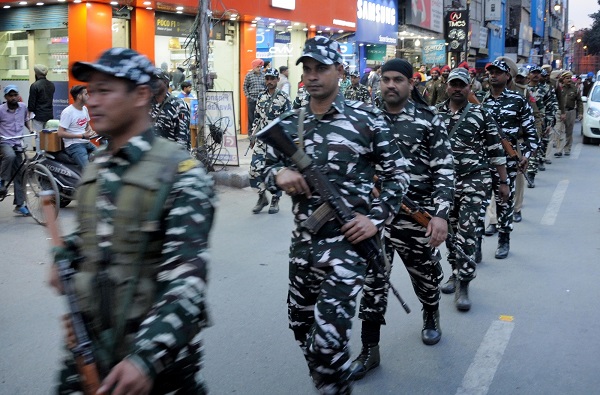New Delhi, Jammu and Kashmir has always been in news but over the last few days, the troubled part of India has attracted heightened interest, in the run-up to and after removal of special status and bifurcation of the state.
President Ram Nath Kovind on Wednesday signed an order ending the special status granted to Jammu and Kashmir under Article 370, a day after Parliament passed the resolution, along with a bill to bifurcate the state into two Union Territories – Jammu and Kashmir with a legislature and Ladakh without a legislature.
In Kashmir Valley and Jammu region, strict curbs are in place since the night of August 4 and most of the political leaders are under detention, which the government says is a “precautionary measure” to prevent disturbances and violence that may be engineered over the Article 370 issue. There was no need to impose such restrictions in Ladakh province.
Tens of thousands of security personnel drawn from paramilitary forces like the CRPF, the BSF, the SSB and the ITBP, along with Jammu and Kashmir Police, have been deployed, mainly in Kashmir Valley and Jammu province, to enforce Section 144 of the Criminal Procedure Code, which prohibits gathering of more than four persons at a place. In addition, the Army is also at hand, whenever required.
However, the exact strength of the force deployed is not known as nobody in the security forces is ready to discuss such a sensitive matter.
“I cannot give you the number,” a senior officer of a paramilitary force told IANS when approached for an estimate about the deployment strength.
A source said the law and order duties are being performed mostly by the Central Reserve Police Force (CRPF) and J&K Police, with occasional deployment of the BSF (Border Security Force), the SSB (Sashastra Seema Bal) and the ITBP (Indo-Tibetan Border Police).
The BSF, which was deployed in Jammu and Kashmir for internal security duties in large numbers till 2005, is now mainly tasked to guard the International Border and Line of Control (LOC), as per the recommendations of the Subrahmanyam Committee set up after the Kargil war of 1999.
However, dozens of BSF companies are present in Kashmir Valley as standby, in case the force is required for any assistance, like during the Amarnath yatra, the source added.
Ahead of the implementation of the Centre’s decision, unveiled on Monday, the Centre rushed 100 additional companies, comprising about 10,000 personnel, of paramilitary forces to Kashmir. Among the 100 companies, 50 were of the CRPF, 30 of the SSB, 10 of the BSF and 10 of the ITBP.
In fact, the urgency of the move was reflected in the July 25 order of the Union Home Ministry which said that out of 50 companies of CRPF, 9 companies should be pulled out from their deployment for Parliament security and the Kanwaria yatra in Delhi.
Some reports suggested that the number of additional companies rushed to the state was 280 (approximately 28,000 personnel).
The Centre also curtailed the annual Amarnath yatra on August 2 and advised the pilgrims, as well as tourists, to leave the Valley “as soon as possible”, saying there were intelligence inputs about terrorists planning attacks. The annual yatra was to conclude on August 15.
These measures created panic in Kashmir Valley and special interest in rest of the country.
What is going to happen in Kashmir? Something big? These questions were on everybody’s mind amid various speculations and rumours being floated and spread. The speculations included that the Centre is going to abrogate Article 35A, which grants special privileges to the ‘permanent residents’ of Jammu and Kashmir state, or the Centre is going to trifurcate the state by making Kashmir and Ladakh Union Territories, leaving Jammu as a state.
Though Governor Satya Pal Malik insisted that no political move was in the offing and measures were being taken just from the security point of view because of terror threat, this could not douse the rumour-mongering. And finally, rumours were not too off the mark.










